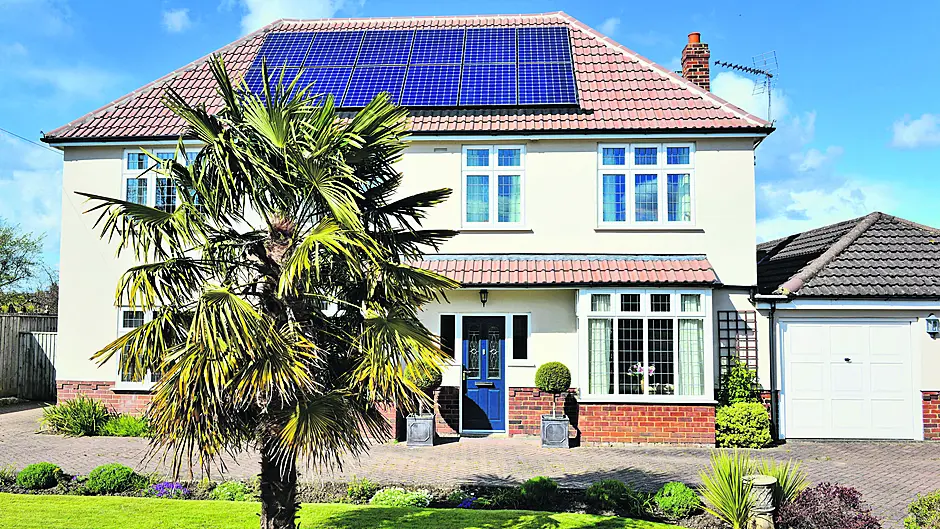THE latest Tams 3 announcement by the Department of Agriculture, has been blasted as an outright ‘declaration of war’ on all agri contractors who provide a professional service to Irish farming, according to the Association of Farm & Forestry Contractors in Ireland (FCI).
‘The Tams 3 scheme provides farmers with virtually free machines in order to put agricultural contractors out of business,’ said FCI national chair John Hughes.
‘The glaring omission. points to the continuing total exclusion of agricultural contractors from the huge financial benefits totalling €370m, provided for the purchase of a range farm machines, all of which will be directly competing on an unfair basis, with the services provided by agricultural contractors, generations of who have provided professional services to thousands of farms across all counties of Ireland,’ he added.
Teagasc reports he said, have shown that across Irish farms, farmers have spent an average of €5,682 on contractor services during 2021. Based on a farming population of 135,000 farms, this puts the value of the sector at more than €760m, he said.
‘Now the Department seeks to totally eliminate the hugely valuable and essential agricultural contractor sector while giving up to 60% grant aid for machinery investments solely to farmers as if the contractor sector is totally invisible and simply does not exist.
‘This approach is both blatantly discriminatory and blatantly anti-competitive,’ he said.
The scheme in the way that it is currently formulated, is promoting additional and unnecessary investment in more farm machinery, and is contrary to government and EU policies of reducing carbon emissions in Irish agriculture, according to FCI.
‘When an agricultural contractor provides a service to 50 or 100 farmers in a region, that contractor is spreading the carbon load more efficiently across all farms rather than if each of those 50 to 100 farmers invested in their own tractors and machines,’ said John.
However, he said it appears from the that it is the objective yhat each tillage farmer should purchase their own strip-till sowing machines, each sowing relatively low hectare levels, rather than have one contractor providing a service to 50 or 100 farmers.
For members of FCI, he said, the big issue around slurry management is not the purchase of ‘shiny new metal,’ but the lack of slurry storage capacity on farms.
‘As animal numbers have increased, we have noted that very little extra slurry storage capacity has been put in place at the same time.
‘Our FCI members have responded with significant non-grant aided investments to move slurry quickly once the season opened.
‘However, this new Tams 3 grant scheme does not prioritise the construction of additional slurry storage capacity over machinery investment which is a blatant omission of what should have been the absolute priority,’ he said.
The FCI have voiced these concerns in a letter to Minister McConalogue.
The prioritisation of the construction of additional silage storage capacity has also been noted by FCI to the Department of Agriculture in recent submissions.
‘Our members have been forced to work on dangerously high silage pits putting themselves and their skilled operators at risk.
‘Again, this new Tams 3 grant scheme does not prioritise the construction of additional silage storage capacity over machinery investment which is a second blatant omission of what should have been another absolute priority,’added John Hughes.
Meanwhile, Macra president John Keane said that the omission of construction costs associated with new milking parlours is a major blow for young farmers starting out in the sector.
Also excluded are those farmers who availed of grant aid for robotic milking equipment under the previous Tams 2.
He said this came at a time when labour is in short supply.
More positively, the investment ceiling for solar will be increased to €90,000 per holding for the duration of the scheme.
This means every eligible farmer will be able to apply for the maximum ceiling of €90,000 for the solar capital investment scheme along with a ceiling of €40,000 for the low emission slurry scheme (Less).Farmers may also include the energy demand of one dwelling house per holding in the sizing of the solar panel array, which will greatly benefit farm families during the current energy crisis.
‘During this period of rising energy costs, it’s a great opportunity for farms in West Cork to invest in their future,’ Deputy Christopher O’Sullivan said.
‘Also farmers will be able to sell surplus energy back into the grid,’ he said.







